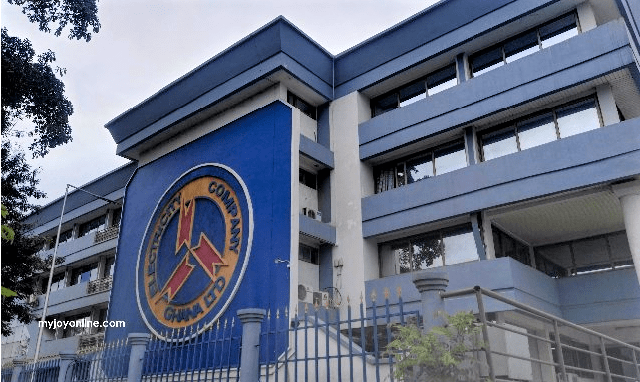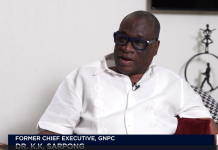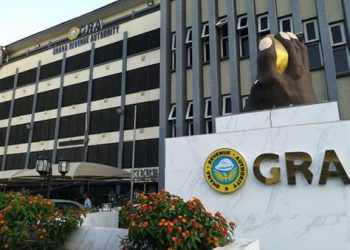A coalition of 14 Civil Society Organizations (CSOs) has initiated a civil lawsuit against the Electricity Company of Ghana (ECG) and Fidelity Bank Ghana Limited.

The lawsuit, represented by the AudreyGrey law firm, aims to clarify ECG’s responsibilities under the Public Procurement Act (2003) amid allegations of procurement violations and conflicts of interest involving politically exposed executives.
This coalition, which includes organizations such as the Africa Centre for Energy Policy (ACEP), the Institute for Liberty and Policy Innovation (ILAPI), and the Centre for Democratic Development (CDD), contends that ECG’s recent appointment of Fidelity as its “single account” custodian, along with the related multi-million dollar foreign exchange transactions, should have complied with the Public Procurement Act.
They argue that ECG’s failure to adhere to this legislation constitutes a breach of procurement regulations designed to ensure transparency and accountability in public sector operations.
The lawsuit raises serious concerns about potential conflicts of interest, noting that certain executives from Fidelity Bank are members of ECG’s Board.
The coalition asserts that this relationship creates a problematic environment for decision-making and exacerbates ongoing procurement issues within the energy sector.
Ghana’s energy sector has long been recognized as a significant factor in the country’s fiscal challenges, with the recent International Monetary Fund (IMF) program identifying chronic energy sector debt as a major barrier to economic stability.
The coalition believes that the scrutiny of ECG’s procurement activities is crucial to addressing its financial problems and preventing a recurrence of the debilitating power crises that have previously affected the nation.
Reports of procurement abuses within ECG have increased, with the Auditor General highlighting numerous instances over the years. Recently, the organization faced criticism for its procurement of smart meters.
Furthermore, ACEP is currently investigating ECG’s multimillion-dollar procurement of a mobile application, raising additional concerns regarding the company’s operational integrity.
The coalition argues that ECG’s procurement practices illustrate a broader failure of governance in the energy sector that must be addressed to prevent future crises.
They emphasize that the mounting unproductive debt in the energy sector significantly contributes to high inflation, currency depreciation, and the ongoing fiscal issues facing Ghana.
ECG has attributed many of its financial challenges to foreign exchange losses, claiming they amount to tens of millions of dollars.
The coalition asserts that without the transparency and accountability required by the Public Procurement Act, these financial transactions cannot be effectively examined.
Below are the 14 CSOs
1. Africa Center for Energy Policy (ACEP)
2. Democratic Credentials Network (DCN)
4. Institute for Liberty And Policy Innovation (ILAPI)
5. Africa Centre for Entrepreneurship and Youth Empowerment (ACEYE)
6. Renel Ghana Foundation (RENEL)
7. Grassroot Mobilizers Foundation (GMF)
8. Centre for Democratic Development (CDD)
9. IMANI Centre for Policy and Education (IMANI)
10. Institute of Energy Studies (IES)
11. Community Focus Foundation Ghana (CFF-Ghana)
12. ODEKRO PMO Foundation (ODEKRO)
13. iWatch Africa (iWatch)
14. Center for Extractives & Development (CEDA)























































![[FREE FREE MONEY] Predict and Win a Guaranteed GH¢200 From Us EVERY WEEK](https://wordpress.ghanatalksradio.com/wp-content/uploads/2022/02/Predict-and-Win-Final-09-03-2021-218x150.jpg)
![[Predict & Win – 8th/Oct.] WIN A Guaranteed ¢200 From Us This Week](https://wordpress.ghanatalksradio.com/wp-content/uploads/2021/10/maxresdefault-16-218x150.jpg)
![[Predict & Win – 2nd] WIN A Guaranteed ¢200 From Us This Week](https://wordpress.ghanatalksradio.com/wp-content/uploads/2021/09/maxresdefault-50-218x150.jpg)
![[Predict & Win – 25th] WIN A Guaranteed ¢200 From Us This Week](https://wordpress.ghanatalksradio.com/wp-content/uploads/2021/09/maxresdefault-36-218x150.jpg)
![[Predict & Win – 18th] WIN A Guaranteed ¢200 From Us This Week](https://wordpress.ghanatalksradio.com/wp-content/uploads/2021/09/maxresdefault-23-218x150.jpg)








![[National cathedral] See full list of churches that have contributed since 2018](https://wordpress.ghanatalksradio.com/wp-content/uploads/2020/09/Ghana-National-Cathedral-GhanaTalksRadio-100x70.jpg)



